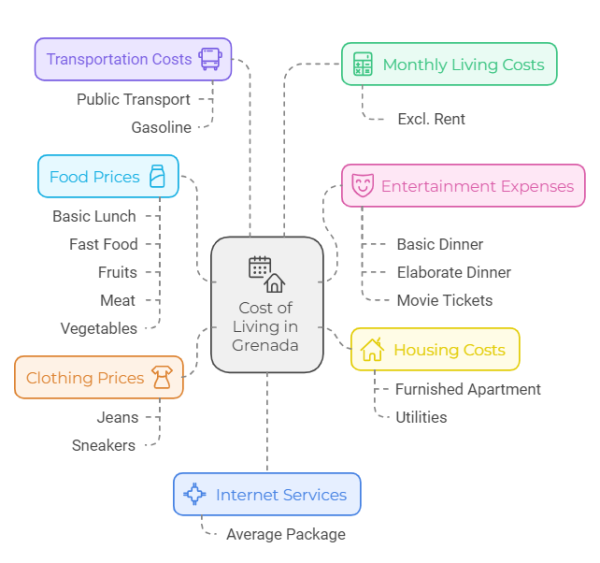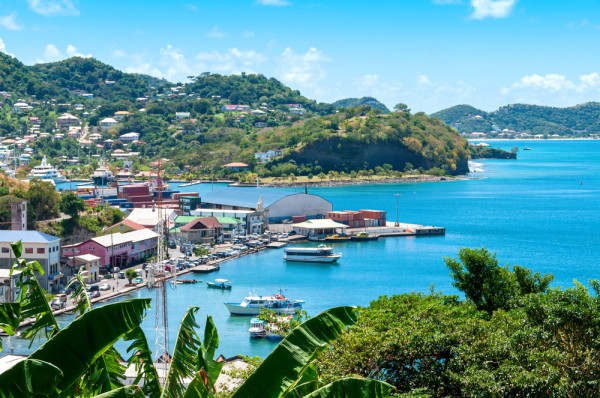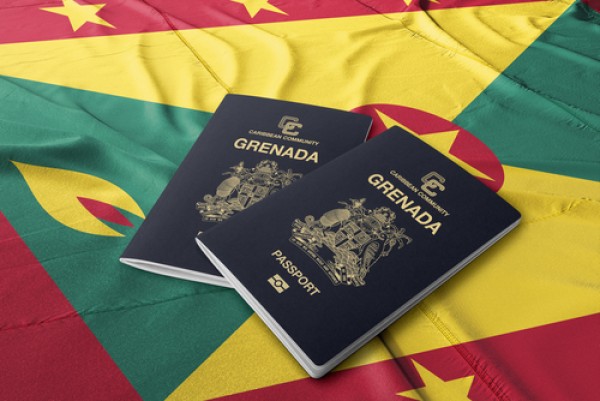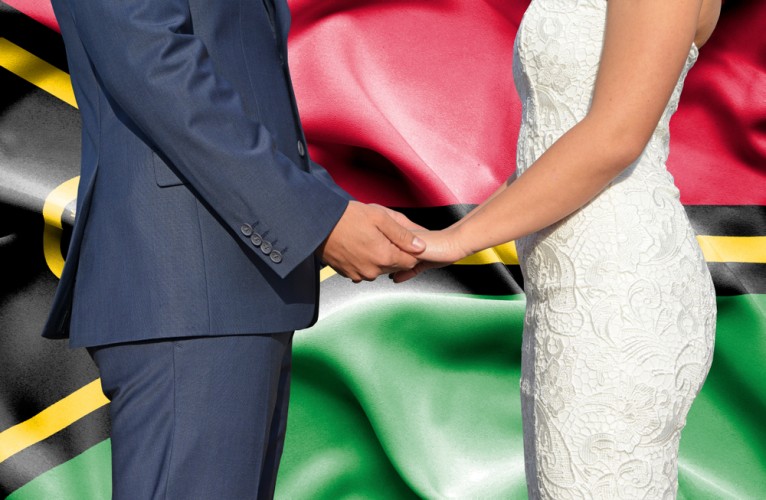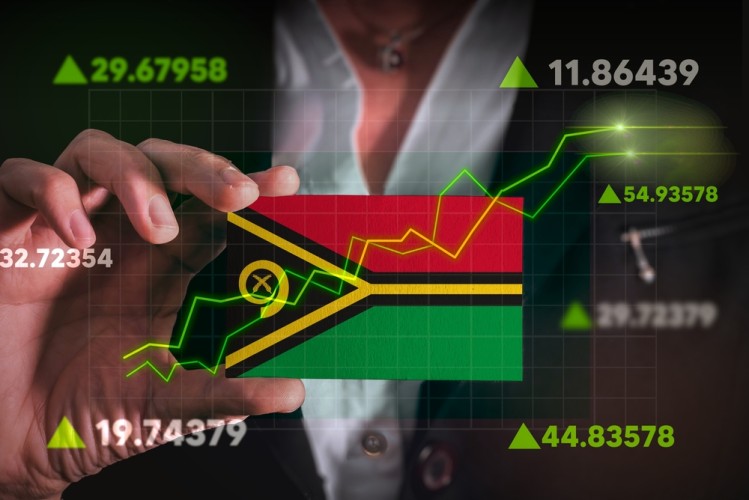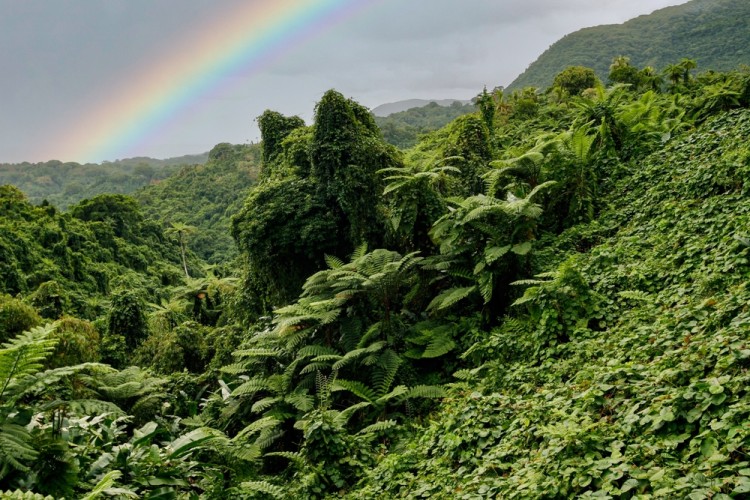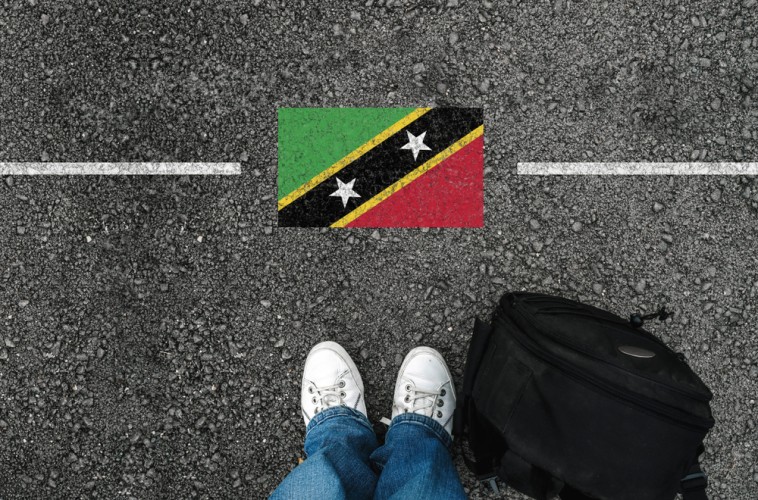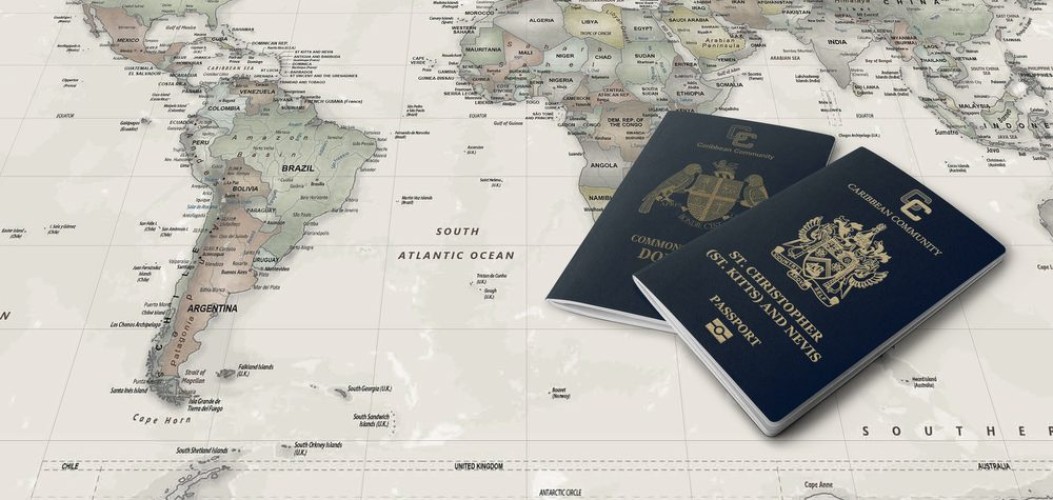Grenada is a small island nation with secluded beaches and bays. It is a country with a complicated past, which until 1838 had no sovereignty at all. However, everything now is different. Although the country hasn’t acquired fabulous wealth, yet it has managed to build up and stabilize a moderate quality of life and an obvious level of democracy.
The state is good for those who want to relax in a tranquil atmosphere, to see the beaches with soft white sand, to witness majestic citrus groves, nutmeg plantations, and the local famous turtles.
Pros of living in Grenada
The island of Grenada offers a tranquil lifestyle and a plethora of advantages for expatriates seeking a temperate climate, a welcoming community, and a natural environment. The climate should be emphasized, as it is arguably the most significant factor influencing the quality of life here. The temperature on the island typically ranges between 25 and 30 degrees Celsius, with no excessively hot summers or harsh winters.
There are no notable periods of cold weather either. Furthermore, Grenada has a stable currency. Although it’s not particularly noteworthy. it’s however, tabbed to the U.S. dollar, which simplifies financial transactions and brings some stability.
It would be remiss not to mention the remarkable hospitality of the locals, although this is a rather subjective point. Nevertheless, the integration will be straightforward and agreeable. Possibly not immediate, yet still seamless. The thing is, the island is a melting pot of diverse cultures, encompassing European, African, and Asian influences.
It’s a distinctive phenomenon, and even the most seasoned travelers probably will require more than just a day or two to experience the rich culinary traditions from across the globe and adapt to the occasionally stark contrasts in lifestyle.
Cost of living in Grenada
- Monthly Living Costs (Excl. Rent): $700 (single person)
- Food Prices:
- Basic lunch: $10
- Fast food: $7-8
- Apples: $20/kg
- Chicken breast: $4/kg
- Potatoes: $4/kg
- Housing Costs:
- Furnished apartment (90m²): $1,000/month
- Utilities (90m²): $100/month
Housing is the most significant expense here. The average payment for a furnished apartment of 90 square meters can reach almost $1,000 a month, and utilities for a similar area add $100. The tariff of internet service providers is also quite high. It’s hard to get a stable connection in the state because it’s so small. So, an average package of services with all the basics and a mediocre speed will cost about $40 a month.
Clothing prices are generally in line with those in the US, yet not with similar salaries. So, a pair of good jeans is around $55, and a pair of sneakers is about $100.
Entertainment expenses vary quite a bit. An ordinary dinner is priced at about $70, and more elaborate meals will be worth about $130 or more, while the movie tickets are relatively inexpensive at $10 for two.
Favorable tax incentives
There’s no income tax, and estates and inheritances aren’t taxed either. Nevertheless, the local fiscal legislation is in line with international financial structures, and there are great conditions for doing and developing business here.
There’s more: one doesn’t have to pay tax contributions for the first 20 years from the date of company registration. In addition, corporate income tax is levied at a rate of between 5 and 15 per cent, while property tax is set at a maximum of 0.5 per cent. These rates are notably low.
One of the safest Caribbean countries
It’s a safe and peaceful place of course. That said, it’s still a good idea to stick to the usual security procedures. For instance, it’s probably best not to carry valuables, documents and large sums of money with you. That’s about as standardized as it gets. One’d be hard pressed to find a state where this very advice wouldn’t apply.
Nonetheless, there are a few particular things to keep in mind. As a general rule, it’s probably best to stick to bottled water, even though the tap is relatively safe to drink. Also, the sun on the islands is very strong, even though the temperature isn’t scorching. The latter fact can be deceptive, so it’s essential to have sunscreen and sunglasses that block out UV rays.
Lastly, you’ll find no sharks or other dangerous sea creatures on the beaches: Nature has built up the area with massive coral reefs to keep them out. Speaking of security in another aspect – medical – Grenada has one of the best health care systems in the Caribbean area.
There are more than 25 health posts, six profile centers and eight hospitals, the largest of which is the General Hospital in St. George. There is private health insurance as well. Despite the comprehensive healthcare system, there are still shortcomings and cons in its quality. There are instances where there is a shortage of medical specialists in sophisticated niches, such as cyber prosthetists and podiatry.
Additionally, there are instances where some medications are not consistently available in pharmacies, despite that there’s always a presence of vital remedies.
US expats moving to Grenada
The cost of living here is generally lower than in the United States, so Americans moving here isn’t so rare. The island is mostly preferred by the upper class, since sailing is popular here – there are several quality marinas that appeal to yacht owners. A significant proportion of them are from the USA. Additionally, there is a strong presence of individuals hailing from the United Kingdom and some EU states.
How to move to Grenada
Thinking about relocating to a tropical paradise? Grenada, known as the “Spice Isle,” offers stunning beaches, vibrant culture, and a warm, welcoming community. Whether you’re drawn by its Grenada Citizenship by Investment program, its business opportunities, or simply the allure of island life, Grenada provides a unique blend of affordability and luxury. How to become a citizen?
By Investment (CBI programs)
Normally, a Grenada passport is obtained through investment. Such an opportunity was introduced in 2013, established under the Citizenship by Investment Act No.15/2013. Acquisition of citizenship in this case is contingent upon a non-refundable contribution of $235,000 to the National Transformation Fund or a qualifying real estate investment of no less than $270,000.
No proficiency examinations in the local language or history are required, nor is physical presence in the country. Dependents, defined as spouses, children, parents, and siblings of the principal applicant, are eligible for inclusion as well. Investing here offers diverse avenues. The most popular way, representing over 65% of all investors on principle. But it requires a five-year property holding period before selling.
By birth and adoption
Children born to Grenadian parents automatically become citizens. However, a minor child of foreign origin adopted by a local citizen, whether single or married, acquires citizenship upon issuance of the custody order.
By registration
Registration is available to Commonwealth inhabitants, citizens of the Republic of Ireland, and spouses of Grenadians. The former two have specific eligibility criteria. They must:
- Demonstrate good character and absence of criminal convictions.
- Possess sufficient English proficiency.
- Reside for a period determined by the Minister of Citizenship (not less than twelve months, nor exceeding five years).
- Demonstrate an intention to remain here permanently, and to make the country their center of interest.
By naturalization
Naturalization is granted following a minimum 8-year period of continuous lawful residence, demonstrating substantial integration into the society. (the Minister of Citizenship retains the discretionary authority to reduce this period).
Initial entry necessitates a residence permit, obtainable on the grounds of employment, business activities, family reunification, or other permissible points that are under extant immigration legislation. Compliance with the conditions of the initial residence permit allows it to be renewed for 3 years, after that the holder may apply for a permanent one.
The specific requirements for obtaining a permanent status vary depending on the basis for the applicant’s initial legal residence. For context, investors are subject to requirements pertaining to the capital invested, criminal background checks and medical clearance. But overall, any applicant for naturalization must satisfy the following mandatory criteria:
- Attain the legal age and capacity to apply for citizenship.
- Maintain continuous presence for a period of twelve months immediately preceding the submission of the application.
- Maintain continuous presence for a minimum period of seven years (or five years for individuals serving in the government) immediately preceding the aforementioned twelve-month period.
Do note that there is no mechanism to ascertain the status of the case. However, the review process is relatively expeditious, with a maximum timeframe of 60 days. If the papers are in perfect order.
FAQ
It can open some doors. With it, one can visit 148 countries around the world, including the entire European Union, China and the UK.
One might also have the possibility of obtaining a US E2 visa, which would allow one to live, work and get an education there. Furthermore, being a Grenadian can also make it easier to get a 10-year visa to the USA, which makes having it (and striving for it) an attractive option.
From two to six months. The most common period of time is 3-4 months.
It is now an independent state. It became such at the end of the 20th century in 1974. Despite this, the country is still under the protection of Great Britain.

